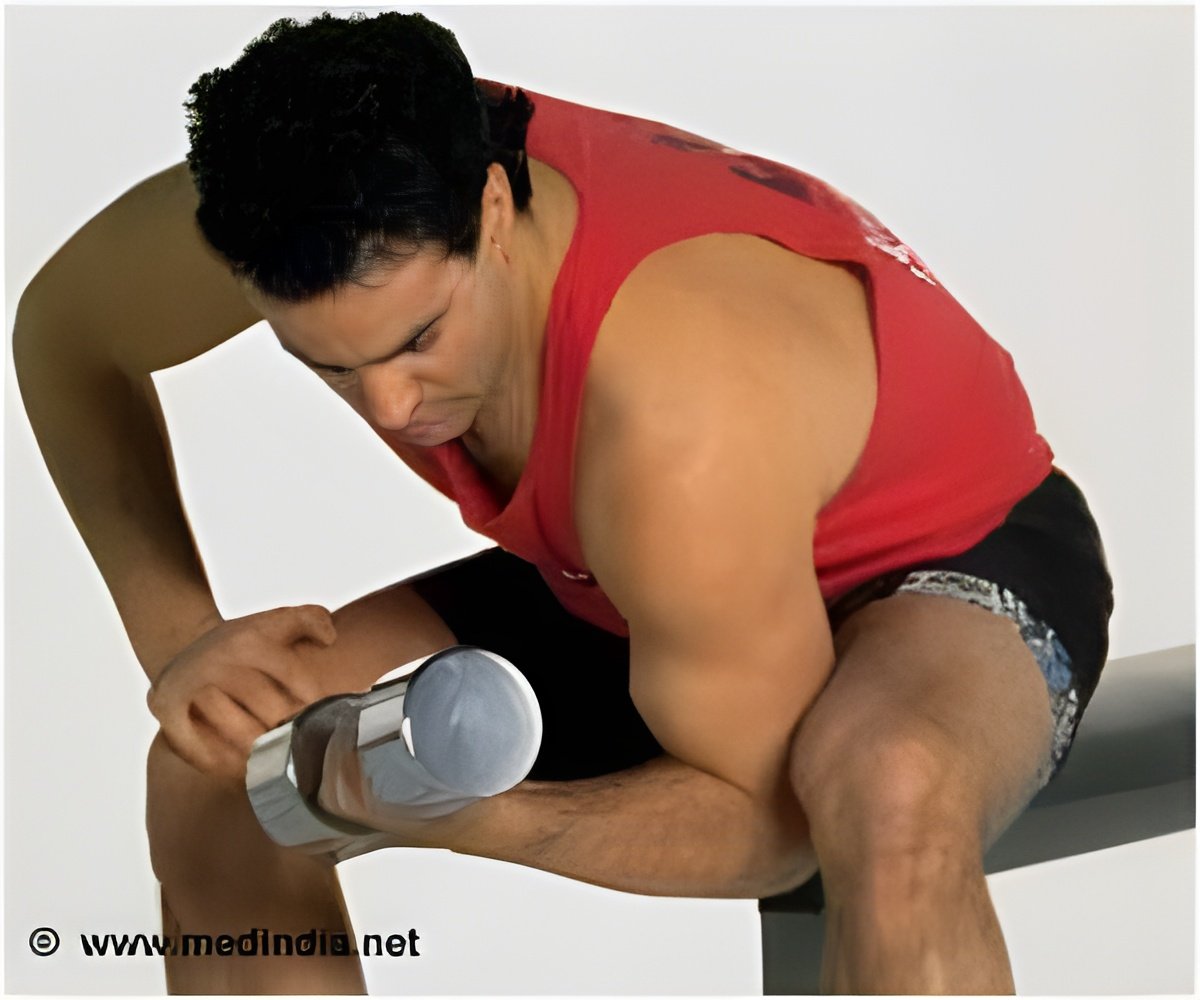
In two separate studies, researchers found anabolic hormones-long thought to be essential for building a muscular frame-do not influence muscle protein synthesis, the process that leads to bigger muscles.
"A popular mindset for weightlifters is that increased levels of hormones after exercise play a key role in building muscle. That is simply not the case," explained Daniel West, lead author of both studies and a graduate student in the Department of Kinesiology at McMaster.
In the first study, researchers examined the responses of both male and female participants to intense leg exercise. Despite a 45-fold difference in testosterone increase, men and women were able to make new muscle protein at exactly the same rate.
"Since new muscle proteins eventually add up to muscle growth, this is an important finding," stated West.
"While testosterone is definitely anabolic and promotes muscle growth in men and women at high doses, such as those used during steroid abuse, our findings show that naturally occurring levels of testosterone do not influence the rate of muscle protein synthesis," he added.
Advertisement
The men experienced gains in muscle mass that ranged from virtually nothing to more than 12 pounds, yet their levels of testosterone and growth hormone after exercise showed no relationship to muscle growth or strength gain.
Advertisement
"The idea that you can or should base entire exercise training programs on trying to manipulate testosterone or growth hormone levels is false. There is simply no evidence to support this concept," said Stuart Phillips, a professor in the Department of Kinesiology.
The studies were published in the Journal of Applied Physiology and the European Journal of Applied Physiology.
Source-ANI









